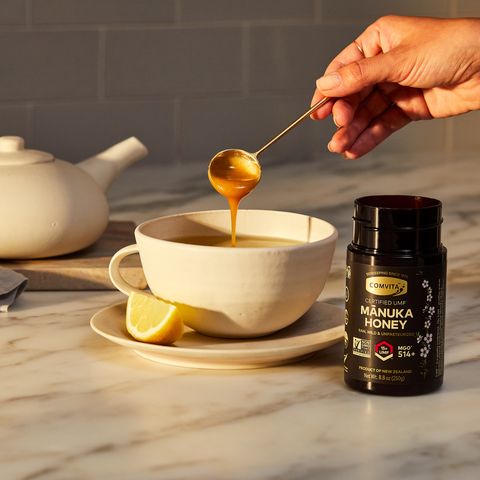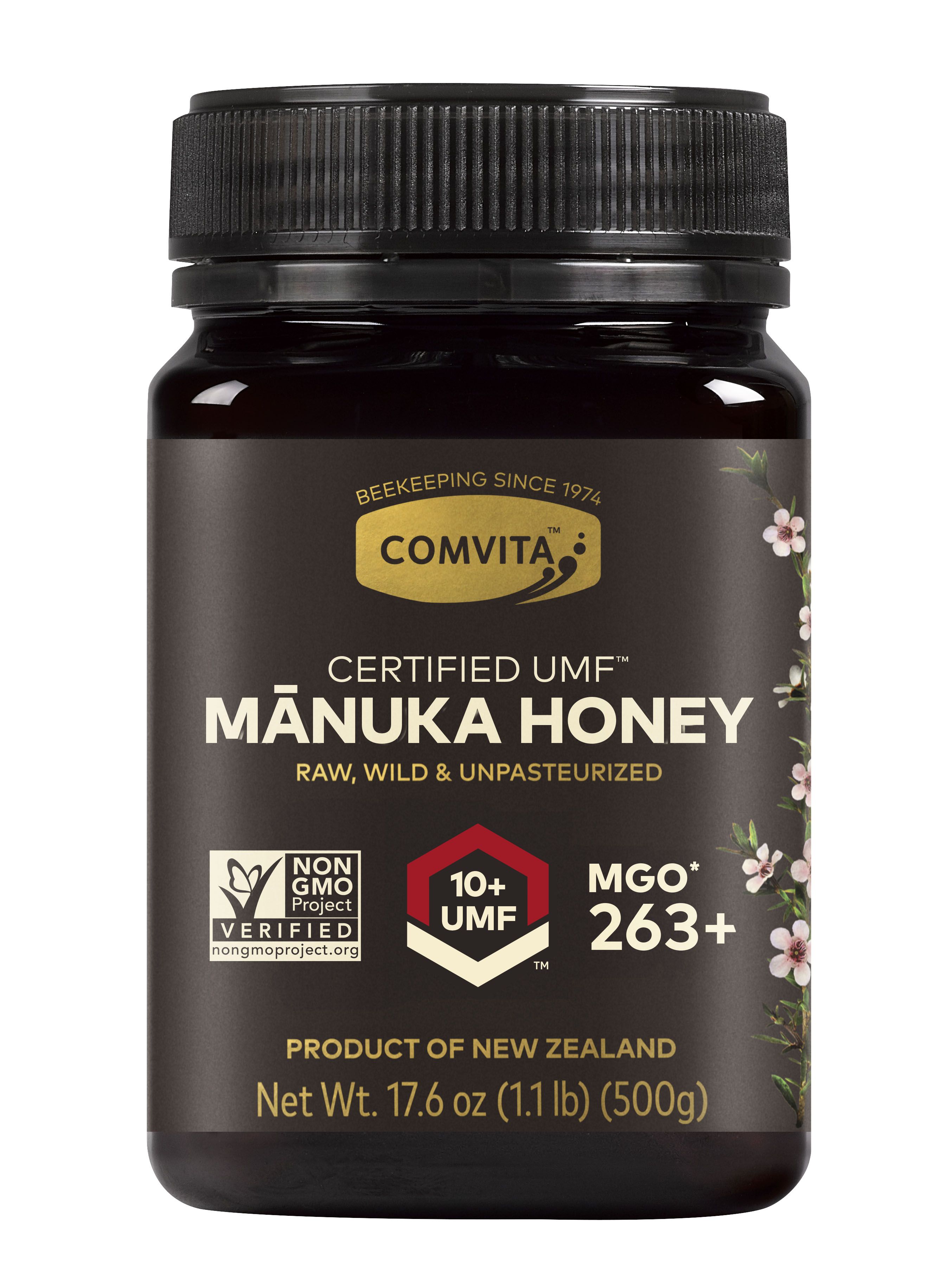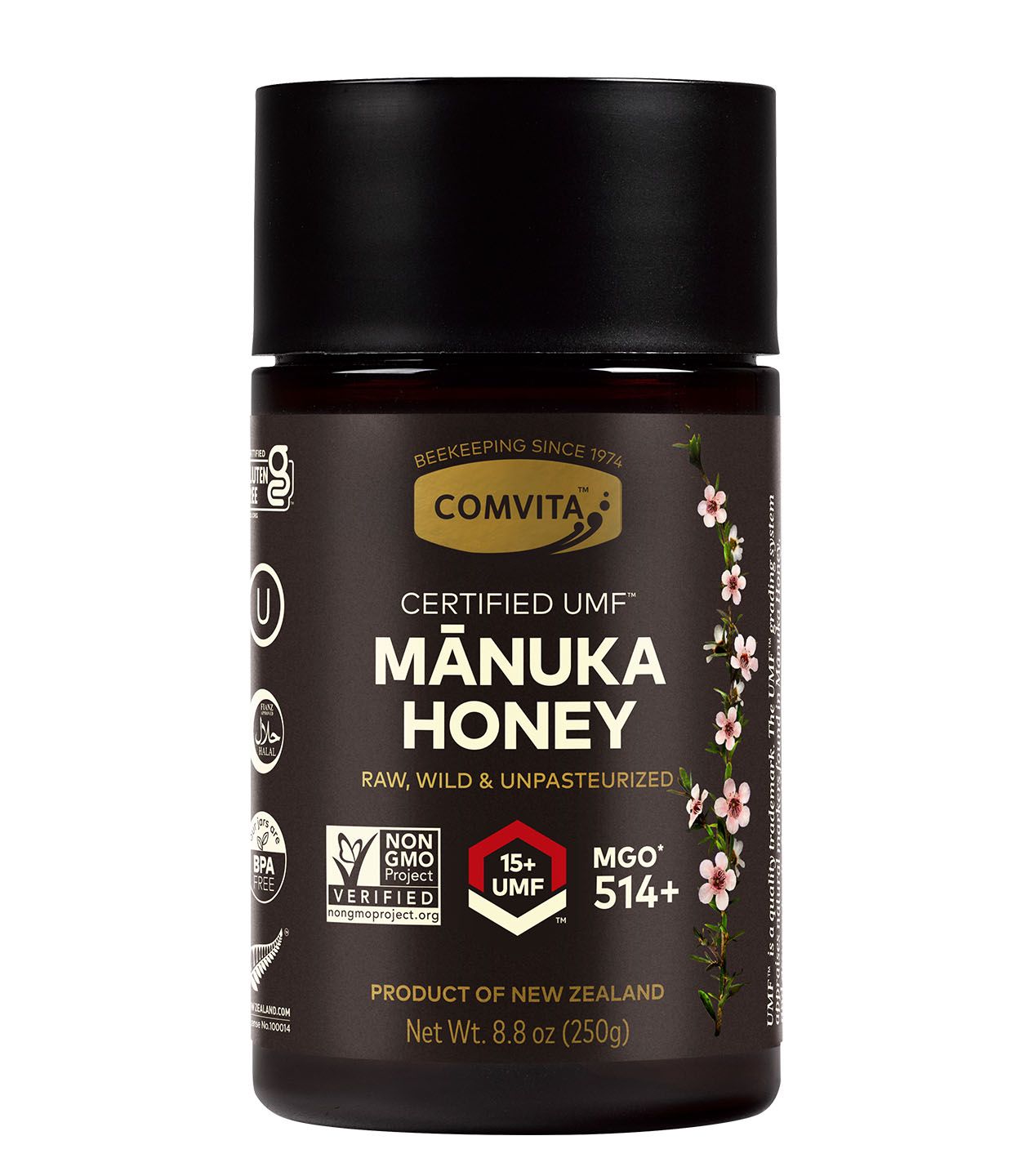You’re sensing that telltale tingle in the back of your throat, and your head is starting to feel like a squeezed lemon. It’s official: You’re coming down with something. ‘Tis the season for the flu, winter colds, and other upper respiratory issues that put a damper on your health and mood. “I like a nose rubbed raw from tissues and stuffed-up sleepless nights,” said nobody ever.
Before you go to the doctor or pharmacy to squash your symptoms, head to the kitchen — because the age-old mantra that you should “feed a cold” has some merit. While no food or drink is going to cure or prevent a cold or flu — or any illness for that matter — modern science suggests that it’s possible to use certain dietary strategies to get through sick season with less suffering. Not only can certain foods ease cough symptoms and perhaps even fight infection, but they may help you fight off colds, too, keeping you from getting them in the first place. “The goal is to keep your immune system strong to better protect yourself,” explains Elson Haas, M.D., an integrative medicine specialist and co-author of the book Ultimate Immunity.
We’ve identified three items in particular that can help keep your natural defenses strong in order to fight off germs or assuage cold and flu symptoms. Stock up on these now so they’re within reach when you need them most.
1. Manuka Honey
When cold or flu hits, you may be tempted to reach for the cough syrup, but a tastier remedy can be found in your pantry. A 2021 review study determined that honey can be an effective elixir for two of the most loathed symptoms of upper respiratory tract infections — cough frequency and severity. The British scientists behind this research speculated that honey could help ease the spread of antimicrobial resistance by lowering the reliance on antibiotics to treat these conditions. “Honey is soothing to the mucous membranes, which can reduce irritation,” says Dr. Haas. The bee-made sweetener may also ease symptoms by suppressing the nerve fibers that cause coughing and forming a protective film over irritated tissues. Honey may provide cough relief for children, too, which should be welcome news for sleep-deprived parents. (However, children under the age of one shouldn’t be fed unpasteurized “raw” honey because of the risk of infant botulism, a form of food poisoning.)
Choose Manuka honey specifically. When bees pollinate a certain New Zealand shrub plant — called the manuka myrtle or tea tree — that blooms for only a few fleeting weeks a year, the nectar they produce contains a higher concentration of methylglyoxal (MGO), a strong antiviral and antibacterial substance, than regular honey.
Only Manuka honey brands that are members of the Unique Manuka Factor Honey Association can label their products with a Unique Manuka Factor (UMF) rating, which indicates the levels of MGO in the product, among other product quality measures. The higher the UMF number, the higher the level of this compound. UMF also authenticates that the Manuka honey is monofloral (not a blend) and hails from New Zealand.
Manuka Honey How-Tos
- For a scratchy throat or nagging cough, stir one to two teaspoons of Comvita Manuka Honey and a teaspoon of fresh lemon juice into warm water. Drink every two to three hours as needed.
- Use a Manuka honey with a UMF of 10+ or more to get the most benefit.
- To work Manuka honey into your meals, spread it onto a slice of toast or add it to yogurt, salad dressings, tea, or smoothies as a natural sweetener.
- As it’s a concentrated source of sugar calories, honey should be consumed in moderation, especially if you have issues with blood sugar control, such as type 2 diabetes. That said, it’s the heavily refined sugars added to foods and drinks that are most problematic — and Manuka honey is not one of those.
2. Tea
One reason behind tea’s timeless popularity could be that it’s linked to medicinal benefits for those who drink it daily — including helping tame cold and flu symptoms. Results from one review and meta-analysis revealed that tea may have significant effects on influenza. “Some research suggests that the phytochemical catechins in tea may help in the fight against upper respiratory tract infections,” says Joan Salge Blake, Ed.D., R.D.N., a nutrition professor in Boston who hosts her own health podcast.
One unique tea catechin called epigallocatechin gallate, which is found in the highest amounts in green tea, can have a direct anti-viral effect and physically binds to and flushes out viruses in the upper respiratory tract. According to other research, tea polyphenols may be beneficial to keeping your immune defenses up.
Then there are the non-scientific, yet soothing, benefits of a nice cup of hot tea. “When you’re feeling under the weather, warm liquids often feel like an internal blanket, making you more comfortable,” notes Salge Blake. Not to be overlooked is the fact that sipping tea is a great way to stay better hydrated, which is important when you’re battling a cold or flu. It helps you replace any fluids lost through fever sweats, which is important because keeping the lining of your upper respiratory tract moist can help ease sore throat symptoms.
Tea-Drinking Tips
- Green tea is the most heavily researched and significant source of the aforementioned virus-fighting antioxidants, but black, herbal, chamomile, and peppermint teas can provide beneficial effects, too.
- Many people add sweetener to their cups to counteract the natural astringency of tea, but too much added sugar in the diet can create health pitfalls. Get used to enjoying the stronger flavor of plain tea. If you prefer some sweetness, add Manuka Honey to your cup for a double whammy of health benefits.
- Hotter steeping temperatures with whole-leaf tea means more antioxidants will end up in your mug. Cold steeping tea over several hours also results in a drink that packs a potent antioxidant punch.
- Bottled tea is a refreshing beverage, but analysis suggests it’s not as high in antioxidants as freshly brewed. Antioxidants in tea begin breaking down shortly after brewing, so the longer a bottle sits on store shelves, the less antioxidant capacity it’s likely to have.
3. Chicken Soup
Maybe mom was right about the efficacy of chicken soup when you’re under the weather; a well-known study suggests that a bowl of broth could possibly mitigate some of the symptoms associated with upper respiratory tract infections. According to this study, the chicken and vegetables in the soup seemed to act as a mild anti-inflammatory, which is helpful because one of the ways colds cause symptoms like coughing is through inflammation, which occurs when viruses trigger a cascade of immune cells to your airways.
Any hot soup can raise the temperature in your body and airways and may loosen mucus secretions and encourage your nose to run — a good thing, since nasal secretions help rid the body of unwanted viruses. But chicken soup in particular brings added benefits. Chicken is a strong source of selenium, a nutrient that plays a vital role in immune function and boosting resistance to viral infections. And it’s always a good idea to consume adequate protein from foods like chicken in order to support the immune system. The brothy soup will also work to keep you hydrated, which can soothe a sore throat and help prevent a pounding headache.
Chicken Soup Suggestions
- Treat yourself to homemade soup if possible. This way, you’ll be able to control what ingredients go into it, such as more vegetables and whole grain noodles. The aforementioned study used what the authors called “Grandma’s soup,” which included plenty of vegetables for added nutrition.
- If you’re pressing the easy button and opting for canned soup, Salge Blake suggests adding frozen veggies while heating it up for a bigger dose of micronutrients.
- When eating store-bought soup, avoid consuming more than your daily limit of sodium. Read the nutrition facts panel and choose an option with 300mg of sodium or less per serving. To maximize health benefits, choose chunky and brothy soups, which typically have fewer calories than cream-based options.




